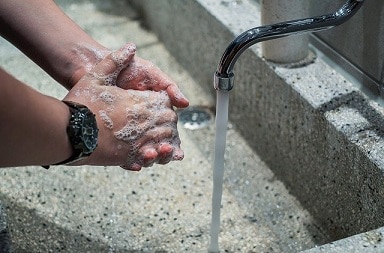The restrictions on covid-19 are starting to ease and non-essential retailers and schools are set to re-open. However, hygienic practices will need to be more rigid than ever and every place of interest will have to adopt formal procedures to maintain cleanliness and prevent a second wave of coronavirus occurring.
Hygiene specialists, Trovex gave this insight into how to make any small business, shop or retailer as clean as possible.
Put hygiene first
Hygiene must become part of the company’s culture and something in which all staff members and customers must participate.
This could mean putting someone in charge of hygiene or greeting customers at the front of the store and making the best practices clear.
Any additional signs, protective screens and clothing would be welcomed to limit the spread.
This includes handing out gloves, masks, encouraging social distancing and checking the health of any staff members and whether they come into contact with customers or other staff.
Having hand sanitiser available at every corner is important and making sure that this is stocked up and not empty.
If the culture of hygiene is instilled into staff members and daily procedures, you are on track to creating a clean environment.
Add washing stations
For hospitals and clinics, it is common to have hand wash stations and hand sanitiser at the entrance of every room. There is no reason why this practice cannot be incorporated into supermarkets, schools and more. Small and compact wash basins can be put together or purchased at little cost and having on in the entrance would be welcomed and fully utilised.
Stay on top of your supplies
Keeping buildings clean means having the right amounts of cleaning products including sprays, hand gels and liquids – and these are quickly becoming scarce.
Make sure that you can stay on top of your supplies and you can do this by checking with your suppliers and always looking for alternatives. It may be worth being slightly overstocked, just in case these products become hard to get hold of.
Trovex, and other suppliers, offer a range of materials that are made for hygiene. These include doors, walls, ceilings and panels that are PVC, wrapped or encapsulated. Usually created under high pressure, high temperature and vacuum-bonded, these materials create an impermeable barrier to moisture and bacteria and maximise hygiene.
You will notice that a lot of new schools (such as academy schools), clinics and hospitals use this type of wall cladding, which makes it easier to clean. When compared to tiles which are prone to getting grit and other dirt between the cracks, having panels is a much more hygienic approach for your interiors.
Monitor the health of your staff
If you work in an environment where your staff come into contact with a lot of people, checking their temperature daily or keeping an eye on any colds and coughs is essential – and staff should be encouraged to work from home or take days off if necessary.
Keep a cleaning schedule
Banks, supermarkets and other high-traffic areas will always have cleaning schedules – but it may be more important than ever to adhere and monitor them. In fact, it could be worth making extra cleaning schedules and more frequently to reduce the risk of any disease spreading.


